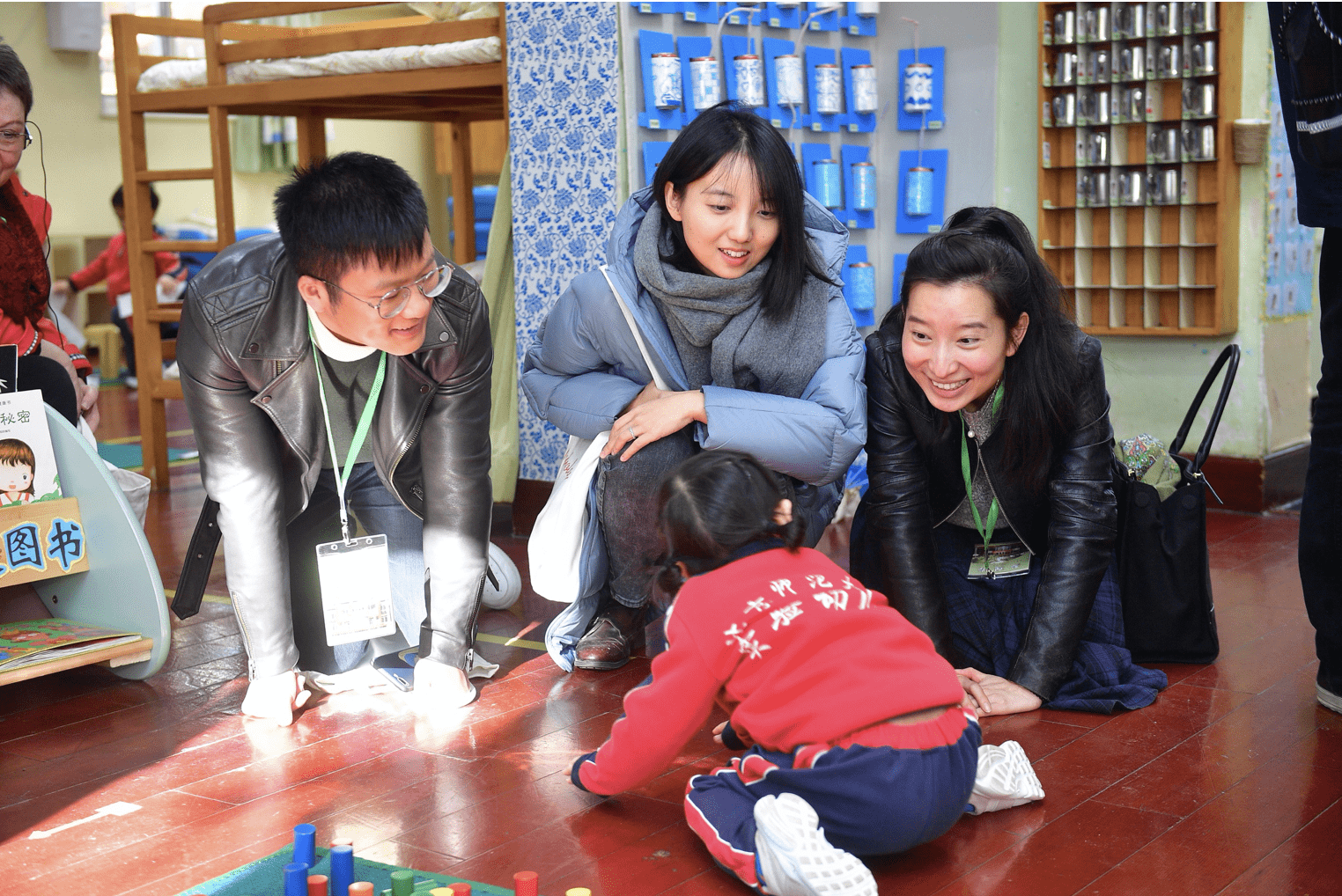New study: empowering teachers, children and parents is the way to achieve the best early childhood education and care
By Blog Editor, IOE Digital, on 22 July 2020
Yuwei Xu, Clare Brooks, Jie Gao and Eleanor Kitto.
The need to educate young children from home during the Covid crisis has caused early years staff and parents to rethink their roles.
At the IOE’s Centre for Teacher and Early Years Education (CTEY) we carried out an analysis of 19 national and regional early childhood curriculum frameworks across five continents. It reveals that most education systems see empowering educators, parents, and children as essential for effective and high-quality Early Childhood Education and Care (ECEC).
Government evaluation reports on those national frameworks make it clear that educators, parents, and children should all be involved both in the policy making of ECEC and in deciding what is taught and learnt in everyday contexts – if policies are to be effectively implemented.
Early childhood educators need both autonomy and support
Among the 19 national curriculum frameworks (NCFs) reviewed, those from Nordic countries provide a set of broad principles, goals and orientations that local settings should follow. Educators in those countries have the flexibility to develop local curricula suitable for their settings’ characteristics and conditions. Children are not formally assessed, and child outcomes are set collaboratively by educators, parents, and children themselves.
In contrast, frameworks in China, England and the US are much more prescriptive and focus on preparations for formal primary schooling. In these countries, the goals and outcomes of ECEC are centrally defined with prescriptive standards of practices and assessments.
This trend is increasing in England, with the introduction of a controversial Reception Baseline Assessment that will assess the attainment of four-year-olds, and the reform of the Early Years Foundation Stage (EYFS) framework, to a more narrow and prescriptive set of Early Learning Goals.
The analysis of frameworks cannot tell us which approach is the most effective. But reviews of the frameworks show that educators themselves prefer a balance between curricular freedom and prescription. On the one hand educators criticise the imposition of universal standards, as even they need to be adapted for local settings and individual children. On the other hand, they want more guidance on how to interpret and implement the national curriculum frameworks, supplemented by exemplar practical guides.
Frameworks that appear to have achieved this balance, according to the review, share the following three features:
- Continuous professional development and staff training that focuses on reflective practice and self-evaluation;
- A systematic quality assurance program or system that provides guidance and support on self-evaluation;
- Flexibility and alignment between universal standards and local conditions.
Children and parents should be involved in the development of National Curriculum Frameworks
The review also suggests two significant benefits to incorporating the voices of children and parents. For example, in Northern Ireland, where parents and children were consulted in the process of developing the framework and changes were made accordingly, settings report better engagement and collaboration with children’s families in fulfilling the framework’s aims.
Furthermore, the majority of NCFs (especially those from systems with high reputations such as Nordic countries and New Zealand) emphasize that parents and children should have a say in the assessment as a key building block for developing effective learning habits.
When children are engaged in thinking about what and how assessment is conducted, they develop an understanding of their own learning. They know their own strengths and areas for improvement and can make progress actively with support from adults. In addition, such an approach also takes into account the support children from different background might need. Parents and families are significant sources of information and support, and their involvement in assessment can bring wider benefits in supporting ongoing development.
Overall, the report shows that an effective, high quality Early Childhood Education and Care system embraces an empowering curriculum framework that enables autonomy for settings, educators, children, and families.
The full report is available here
To cite the report: Xu, Y., Brooks, C., Gao, J., & Kitto, E. (2020). From Global to Local: How can international 0-3 curriculum frameworks inform the development of 0-3 care and education guidelines in China?. UCL Institute of Education, Centre for Teacher and Early Years Education: London, UK.
2 Responses to “New study: empowering teachers, children and parents is the way to achieve the best early childhood education and care”
- 1
-
2
June O' Sullivan MBEZooming to a National OBC Conversation wrote on 28 July 2020:
[…] in the chat. Thank You* What makes the biggest difference to a child’s success in early learning?* New study: empowering teachers, children and parents is the way to achieve the best early childhoo…* How to avoid a deficit approach to cultural capital* Pennie Akehurst Early Years Fundamentals […]
 Close
Close





[…] the chat. Thank You * What makes the biggest difference to a child’s success in early learning? * New study: empowering teachers, children and parents is the way to achieve the best early childhoo… * How to avoid a deficit approach to cultural capital * Pennie Akehurst Early Years Fundamentals […]